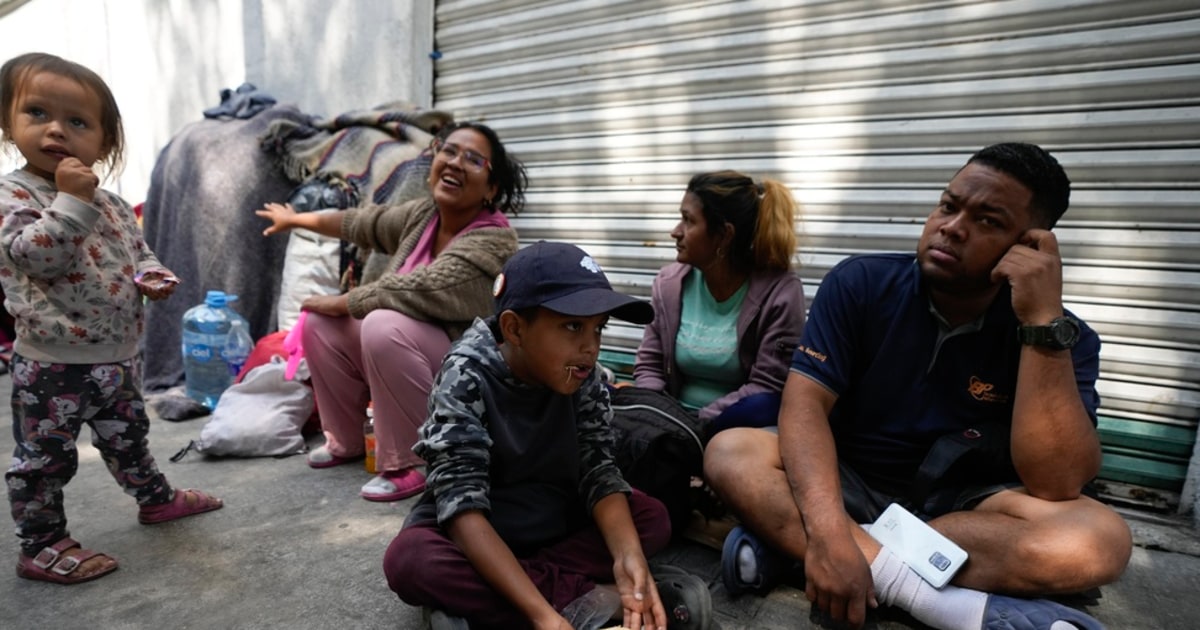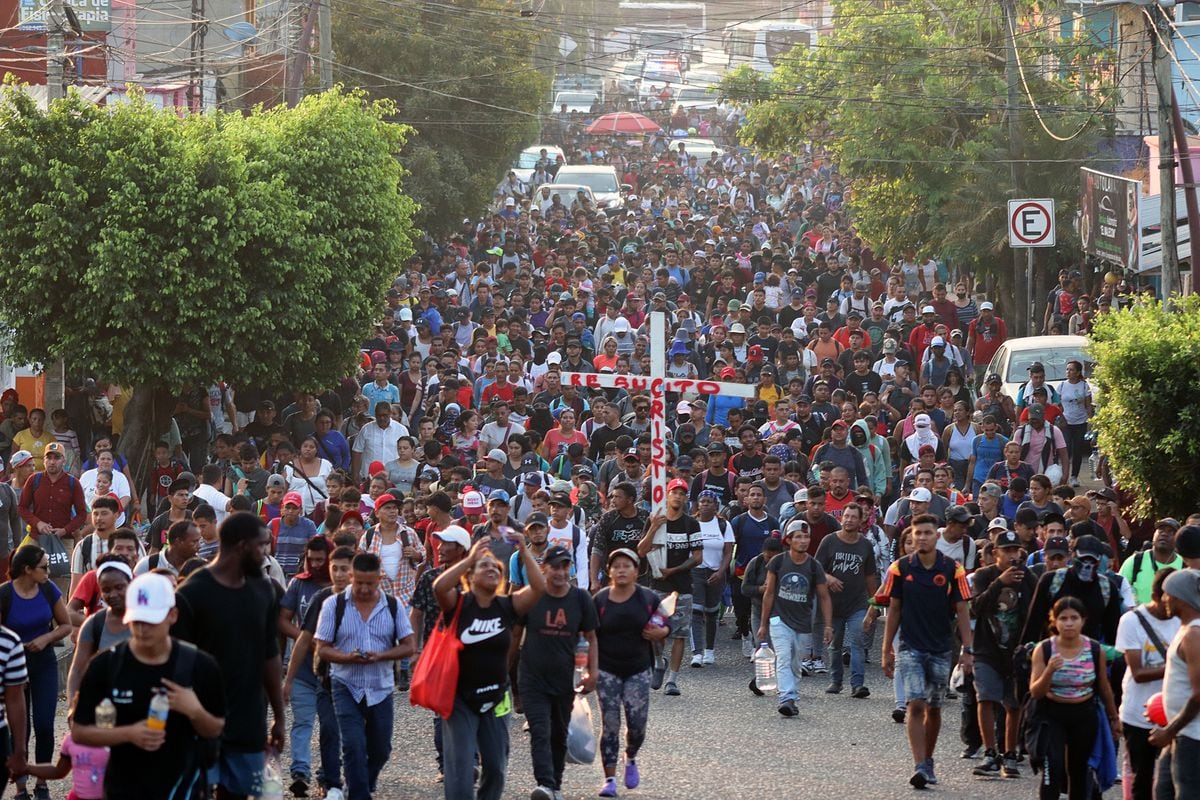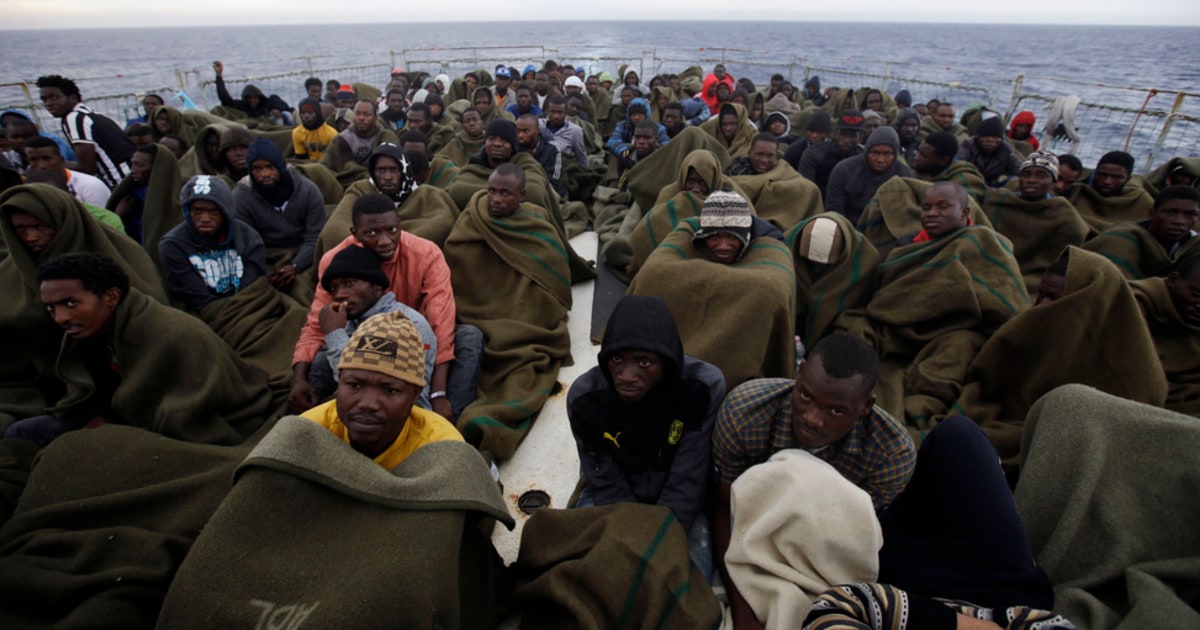Enlarge image
A man walks through a sandstorm in Somalia.
The African country is currently suffering from the worst drought in decades
Photo: Sally Hayden / SOPA Images/ LightRocket / Getty Images
59 million people had to flee within their country last year.
This is according to the annual report on internal displacement by the Internal Displacement Monitoring Center (IDMC).
The reasons for this unprecedented number are primarily war and long-term conflicts, but also natural disasters.
The hardest-hit countries include Ethiopia, Afghanistan, Syria and the Democratic Republic of the Congo (DRC).
The year before, 55 million people were displaced in their own country.
In fact, the authors warn that even more people could be fleeing than the report indicates.
"The situation today is much worse than our record numbers suggest, because that doesn't include the nearly eight million people who had to flee the war in Ukraine," said Jan Egeland, secretary-general of the Norwegian Refugee Council.
The IDMC is part of the aid organization.
The main reason why the numbers are so high is that millions of people cannot return to their home regions, while more people are fleeing.
Around 38 million internal displacements were reported in 2021, the second-highest number in a decade.
Conflict and violence triggered 14.4 million forced displacements, an increase of almost 50 percent from the previous year.
African countries located south of the Sahara were hardest hit.
There were more than five million displacements in Ethiopia alone - the highest number ever recorded for a single country.
The Democratic Republic of the Congo, Afghanistan and Myanmar also recorded an unprecedented number of displacements in 2021.
The Middle East and North Africa, meanwhile, hit their lowest level in a decade as conflicts in Syria, Libya and Iraq de-escalated.
At the same time, the report's authors warn that the number of those unable to return is unlikely to decrease.
"The trend will not be reversed unless safe conditions are created for IDPs to return, integrate or resettle elsewhere," said Alexandra Bilak, director of the IDMC.
»Peace-promoting and development policy initiatives are needed to solve the fundamental problems.«
Extreme weather events cause most displacements
Most internal displacements around the world were still triggered by disasters.
In 2021, there were 23.7 million, according to the report.
Weather-related hazards accounted for 94 percent of the total, many of which were preventive evacuations in the face of hurricanes and flooding that hit densely populated areas in Asia and the Pacific region.
China, the Philippines and India recorded their highest figures in five years at 6 million, 5.7 million and 4.9 million, respectively.
In many countries, however, military conflicts and natural disasters also coincided.
In countries such as Mozambique, Myanmar, Somalia or southern San, this meant that people were repeatedly forced to flee.
The report warns that such crises pose an additional threat to the food security of millions of people.
The pandemic and the dangers of Covid-19 made the situation of internally displaced people even more difficult last year.
Around 25.2 million of the internally displaced persons worldwide were children and young people under the age of 18 last year.
The IDMC calls for special protection for them in order to avoid further conflicts.
»Children and young people are agents of change.
Acknowledging them is crucial to reduce the risk of future crises,” Alexandra Bilak explained.
»Preparing the world of tomorrow must begin with your active participation.«
This contribution is part of the Global Society project
Expand areaWhat is the Global Society project?
Under the title "Global Society", reporters from
Asia, Africa, Latin America and Europe
report on injustices in a globalized world, socio-political challenges and sustainable development.
The reports, analyses, photo series, videos and podcasts appear in a separate section in the foreign section of SPIEGEL.
The project is long-term and is supported by the Bill & Melinda Gates Foundation (BMGF).
A detailed FAQ with questions and answers about the project can be found here.
AreaWhat does the funding look like in concrete terms?open
The Bill & Melinda Gates Foundation (BMGF) has been supporting the project since 2019 for an initial period of three years with a total of around 2.3 million euros - around 760,000 euros per year.
In 2021, the project was extended by almost three and a half years until spring 2025 under the same conditions.
AreaIs the journalistic content independent of the foundation?open
Yes.
The editorial content is created without the influence of the Gates Foundation.
AreaDo other media also have similar projects?open
Yes.
With the support of the Gates Foundation, major European media outlets such as The Guardian and El País have set up similar sections on their news sites with Global Development and Planeta Futuro respectively.
Did SPIEGEL already have similar projects? open
In recent years, SPIEGEL has already implemented two projects with the European Journalism Center (EJC) and the support of the Bill & Melinda Gates Foundation: the "OverMorgen Expedition" on global sustainability goals and the journalistic refugee project "The New Arrivals ", within the framework of which several award-winning multimedia reports on the topics of migration and flight have been created.
Expand areaWhere can I find all publications on the Global Society?
The pieces can be found at SPIEGEL on the Global Society topic page.


/cloudfront-eu-central-1.images.arcpublishing.com/prisa/CQSZWCMFFEISWLLJKA76I3TGKA.jpg)





/cloudfront-eu-central-1.images.arcpublishing.com/prisa/E3I6SSZZQ6W6BXIAXV5VG36JCY.jpg)
